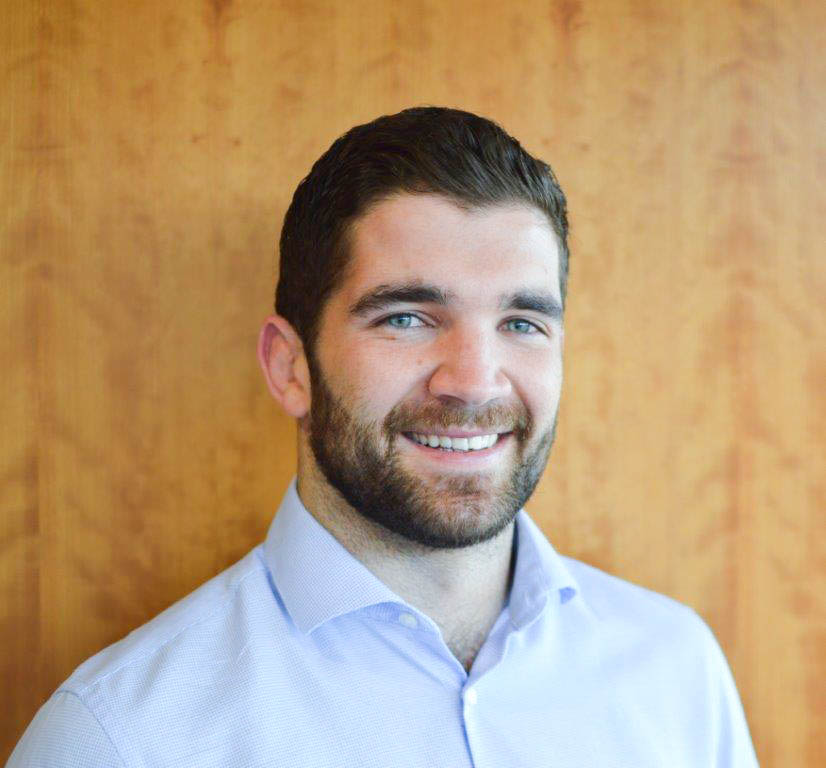University of Salford alumnus, Ryan Snape, now Head of Business Excellence at Siemens Building Technologies, originally studied a BA English and Journalism. Choosing to stay at Salford, Ryan studied an MSc in International Business, graduating in 2014. How did Salford contribute to his career journey? He tells us in his own words…
From English to Business

I originally studied BA English with Journalism at the University of Salford for my undergraduate degree. I really enjoyed my time here and the course, but once I’d finished my degree I wanted to do something a bit more specialised. I was always interested in doing something more business-orientated, so I decided to stay on to do my master’s in International Business.
There were various topics within my MSc, so it was quite broad. We covered economics, acquisitions, mergers, and finance, as well as travelling to Almeria in Spain on an exchange trip! The course itself was attended by a variety of students of different nationalities, as well as international teachers – so there was a lot of diversity.
The teaching was something I hadn’t experienced before. You’d go in for a block of intensive teaching then you’d be given an assignment so you’d go away for a period of home study to complete your work until the deadline. Yet, there was also a lot of contact time with tutors in-between these periods balanced with self-teaching within these intensive blocks.
Our assessments also involved presentations. At first, it was quite overwhelming for me to stand up and speak in front of people but it’s something I have to do every day in my job now so it was good to get experience of doing that. The more that you do it, the easier it becomes!
The Internship

I got to do an internship at the end of my course. Usually, the internship is for 3 months but I got employed by Siemens for a whole year. My internship was working in business improvement and excellence. I was working specifically on a LEAN programme, creating more value for customers with fewer resources. I was co-coordinating improvement activities for all the different functions of the company. As I talked a lot during my interview about business improvement and methodologies that I had learned during my MSc, they felt that this role was the best fit for me.
There was a lot of theory that I learnt during my degree that was applicable day-to-day during the internship, because it was just so relevant! During one of my assignments I touched upon business improvement methodologies, and when I started at Siemens, they were using the same ideas! My manager was impressed that I already knew some of the basis of what they were teaching me.
During the end of this internship, I was completing my dissertation, and it was focused on the role of my internship which was a perfect fit. It also helped out Siemens as an organisation too because it was something they wanted to do research in at the time.
While I was at Siemens, I was constantly making connections to increase my job prospects. In the end, I put my cards on the table and said, “I want a job at the end of this, I’m here for a year, and then I’ll be employable so I want to work here.” My drive and transparency worked out really well, as I didn’t have to leave the organisation and re-apply!
My Future at Siemens

I’ve held a number of roles at Siemens since I started. When I was employed full-time after my internship, I was essentially doing the same thing, and still working on the LEAN programme. When my manager moved to another Siemens division, I stepped into her role, only 9 months after becoming permanently employed. Not long after, another role opened up as an IT Improvement Lead. Siemens merged these two roles, as processes improvement is often directly related to IT, so I became the LEAN Business and IT Improvement Lead.
When the role of Head of Business Excellence was available in another division, I then moved to Surrey. This is in the Building Technologies Division focusing on security, fire, and building management systems. As the Head of Business Excellence, my role is a lot broader now than it was. I look at how we can advocate a high performance culture, supporting and coaching the teams to work on resolutions to challenges they face. I also work a lot at improving our IT tools and systems, the way we’re managing our data, and what we can do to innovate the way we run our processes.
Salford’s Role
![]()
When I look back 5 or 6 years ago to when I was studying English and Journalism, it seems wild how everything in my future panned out. Both courses helped me get my foot in the door, especially my MSc. Although what I’m doing now is at a high level, the breadth of knowledge around international business gained during this course helped me build a foundation to do more things. You need to perform within the job, but the fact I’ve got a masters in International Business has helped throughout my career when I’ve applied for specific roles, because it gives me more credibility. I really enjoyed studying at University of Salford. The courses were great, with good content and the tutors were fantastic at making me feel very well supported. It was good fun as well, which helped a lot! I thoroughly enjoyed my time here, and it helped me get to where I am today.